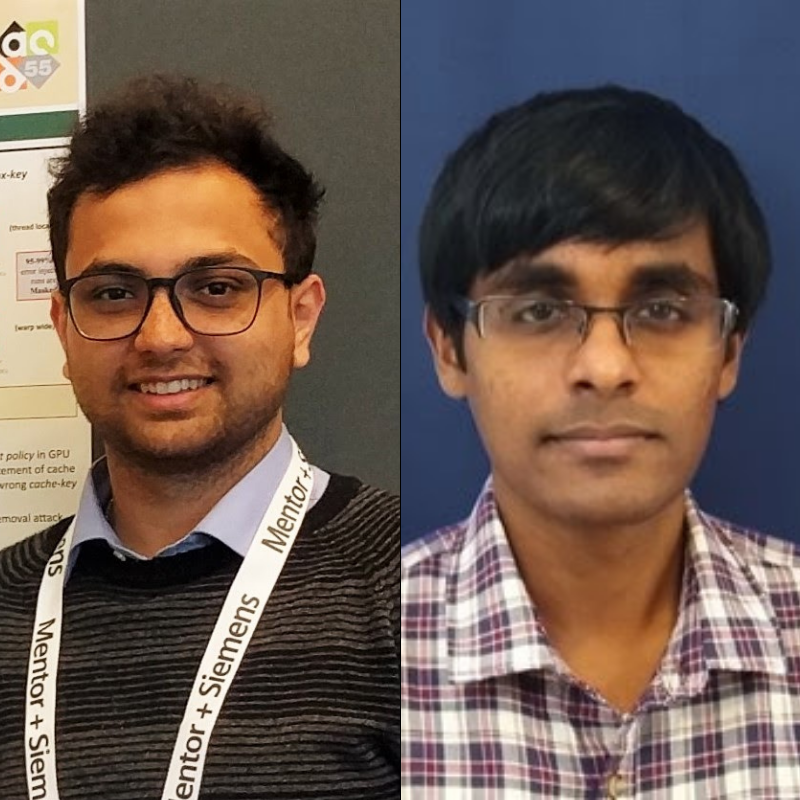
|
 |
(L-R) Abhishek Chakraborty and Joshua Pranjeevan Kulasingham.
|
|
The fellowships are awarded to outstanding students in the final stages of dissertation work in recognition of their research excellence. Each fellowship recipient will receive $3,000. The following authors’ dissertations were selected by a search committee: Professor Eyad Abed, Professor Shuvra Bhattacharyya, Professor Cheng Gong, Professor Agis Iliadis and Professor Shihab Shamma.
Abhishek Chakraborty
Dissertation: “Design Techniques for Enhancing Hardware-Oriented Security Using Obfuscation”
Advisor: Professor Ankur Srivastava
During his Ph.D. studies at the University of Maryland College Park, Abhishek has investigated and contributed to multiple aspects of hardware security research, including hardware obfuscation, side-channel analysis, security of emerging technologies, hardware-assisted IP protection of neural network models, and more. His PhD dissertation focuses on developing effective hardware-oriented obfuscation approaches to enhance security and trust at different levels of design abstractions. His research work has been published in several reputed journals and conferences including IEEE Transactions on Computer-Aided Design of Integrated Circuits and Systems (TCAD), Design Automation Conference (DAC), International Conference on Computer-Aided Design (ICCAD), International Symposium on Hardware Oriented Security and Trust (HOST), International Conference on Computer Design (ICCD), etc.
Joshua Pranjeevan Kulasingham
Dissertation: “Time-Locked Cortical Processing of Speech in Complex Environments"
Advisor: Professor Jonathan Simon
Speech signals have rich spectro-temporal properties and require rapid processing mechanisms in order to result in comprehension. Yet, our brains are capable of performing this task with ease, even in complex environments. Kulasingham's work explores the cortical mechanisms involved in speech processing using magnetoencephalography (MEG), which non-invasively measures the magnetic fields that arise from neural activity. Spatio-temporal models of time-locked cortical responses are estimated from noisy neural signals. Investigating these neural mechanisms could lead to a better understanding of human cognition, language comprehension, and hearing and speech impairments.
Related Articles:
Alumni Profile: Yijie Han
Professor Espy-Wilson Named IEEE Fellow
Min Wu Elected President of IEEE Signal Processing Society
Three ECE Professors Ranked Top Scientists in the World by Guide2Research
Carol Espy-Wilson Receives Campus Woman of Influence Award
UMD GAMMA Group Awarded Best Paper and an Honorable Mention at IEEE VR 2021
Proloy Das Receives Honorable Mention in Charles Caramello Distinguished Dissertation Competition
Professor Pamela Abshire Named 2020-2021 ADVANCE Professor
Behtash Babadi and Dana Dachman-Soled Promoted to the rank of Associate Professor with Tenure
Carol Espy-Wilson Receives Faculty-Student Research Award
May 12, 2021
|

